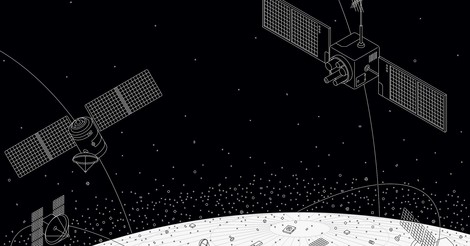Your podcast discovery platform
Curious minds select the most fascinating podcasts from around the world. Discover hand-piqd audio recommendations on your favorite topics.

piqer for: Globalization and politics Global finds
I am an Australian freelance journalist focussing on conflicts, politics, and warzones around the world. I have been working as a journalist for over 5 years, having reported from Australia, Germany, China, Egypt, Palestine, and Ukraine. I am especially interested in the way that new technologies are being used in conflict zones in unexpected and often disturbing ways. During my time working as a journalist, I also co-founded open-source war reporting site Conflict News.
The New Arms Race Threatening To Explode In Space
When US President Donald Trump announced the creation of a fourth wing of the US military, to be known as the ‘Space Force’, he was widely ridiculed. And while his announcement was likely intended as little more than a PR grab, it fits within a trend over the last decade towards the increasing militarization of space.
The space race peaked in the 1960s; however, it has only been in the last 20 years that the true usefulness of space has become understood. Through GPS (and its alternatives like BeiDou and GLONASS), a dizzyingly large array of consumer devices and applications have become possible. Moreover, many of the emerging technologies of the future, such as autonomous cars and drone deliveries, will rely on this tech.
With this explosion of space-enabled technologies, military officials now understand just how vulnerable their countries are to even small attacks in space. A small outage of the GPS network would cause an immediate economic threat, and should a satellite or two be destroyed, it could cause a cascading series of collisions known as ‘Kessler Syndrome’ that would set communications technologies back by decades.
Writing for Wired, Garrett M. Graff explores the way US military planners now view space. With countries like China and Russia expanding their abilities to attack US satellites, many view both defensive measures and offensive deterrents as the only way to ensure security. But as with any arms race, this too holds the potential for grave mistakes …
